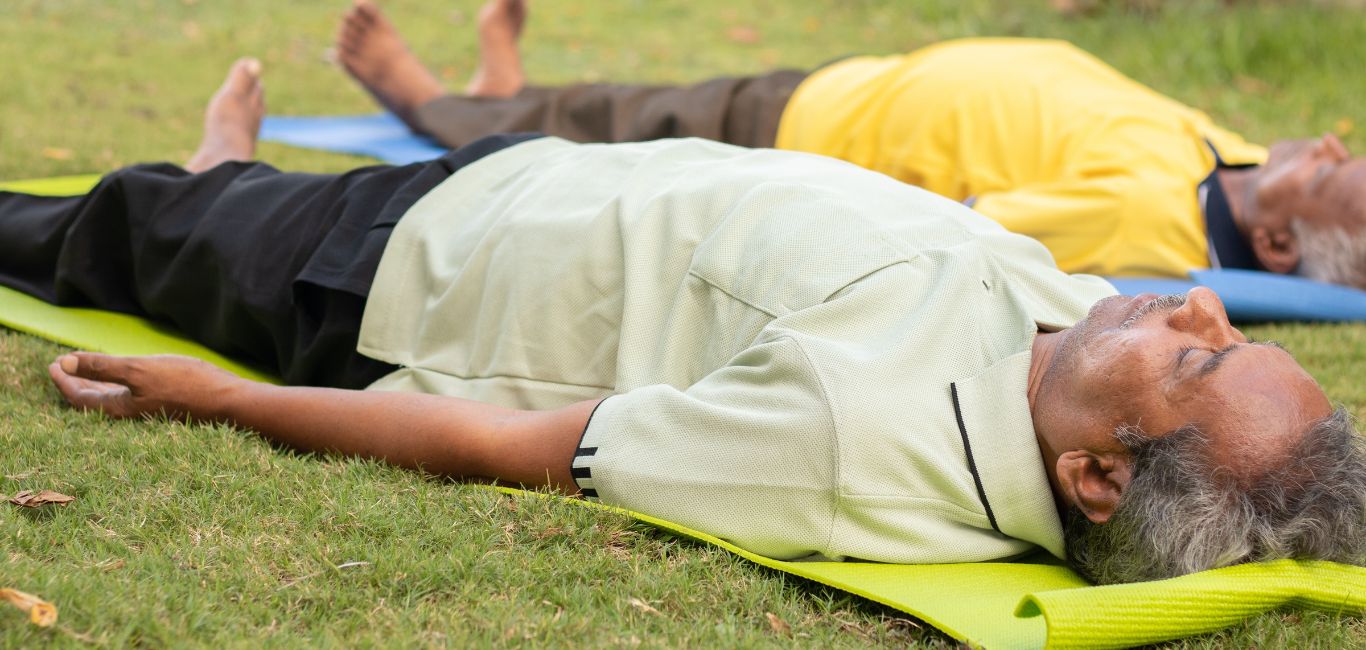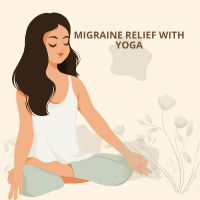
The constant stream of social media posts and feeds has captivated people, keeping them glued to their screens for hours. Ashish Padikkal, an IT professional from Kochi, too, fell into this habit at the cost of his sleep. “The consequences were severe. I began experiencing sleep disruptions, intense headaches, and repeated exhaustion throughout the following day,” Padikkal recalls. Seeking a solution, he consulted an ayurvedic doctor who gave him invaluable guidance. He adds that he was introduced to the concept of yoga nidra, an entirely new practice for him.
Engaging in yoga nidra before bedtime proved to be a transformative experience for him. “The practice offered me a profound sense of calmness, clearing my mind of negative thoughts and worries that often plagued me before sleep,” he says. This simple yet powerful change played a significant role in his improved sleep quality, adds Padikkal.
What is yoga nidra
Yoga nidra is also called Non-Sleep Deep Rest (NSDR). The term was first coined by Andrew Huberman, a neuroscientist from Stanford University. The NSDR technique is a series of breathing exercises using long exhalations and body scans. This is said to help individuals achieve deep sleep or relaxation.
Unlike other practices, sleep is not a skill that we need to acquire because our bodies instinctively know how to do it. However, some people may find yoga nidra helpful for getting a good night’s sleep.
Yoga nidra – the yogic sleep
“Yoga is a means of connection. It is a way to cultivate a deeper connection with oneself, and yoga nidra, often referred to as “yogic sleep,” is a practice that takes this connection to a whole new level. While nidra typically means sleep, in this context, it is a state of deep restfulness that goes beyond sleep,” says, Subash Mohanty, yoga practitioner, MM Global Yoga Wellness, Bengaluru.
He adds that the true difficulty lies in learning to control the mind. This is where yoga nidra comes in, providing a method for healing and relaxing the mind.
The secret to true relaxation: yoga nidra explained
Yoga nidra is a guided relaxation and meditation that involves a systematic process of body scanning to induce deep relaxation. During this practice, the practitioner focuses their awareness on different body parts, one at a time, in a particular sequence. The intention of the body scan is to release tension and induce a state of physical and mental relaxation. Therefore, yogic sleep can be considered a form of full body scan meditation.
11-minute yoga nidra meditation improves sleep
Experts say that yoga nidra can be an option for those seeking a restful experience for both their body and mind. This practice can especially benefit individuals dealing with insomnia, tension, and stress. Although it may appear deceptively simple—just lie down and relax—This involves a deeper exploration of one’s internal experience rather than just focusing on external postures. When you have difficulty falling asleep or waking up in the middle of the night and struggle to fall back asleep, make it a habit to follow the steps consistently.
An experimental study analysed the effects of a 11-minute yoga nidra meditation on stress, sleep, well-being, and mindfulness, focusing on its suitability for individuals with busy schedules. The meditation, which was provided as an audio file, was practised by participants in the meditation group over a period of 30 days. The results showed that even a short daily meditation can positively affect stress, sleep, and well-being.
Deep rest and rejuvenation for better sleep
Yoga nidra guides the mind towards sleep and deliberately induces a state of natural stillness and silence.
In a randomised study conducted in a sleep lab, guided meditation practice in yoga nidra was well-tolerated and feasible for adults with insomnia.
More benefits
Researchers have shown that regular yoga nidra practice improves the quality and duration of sleep, making it an effective tool for individuals struggling with insomnia or other sleep disturbances. “The practice has become integral to my daily routine, nurturing a sense of tranquillity, and fostering restful sleep. The effects were profound, as I began waking up feeling refreshed, energised,” says Padikkal.
“Yogic sleep has the potential to establish new thinking patterns,” says Mohanty.
He adds that if the objective is to enhance sleep quality through yoga nidra, practising this technique in the evening can be highly advantageous.
Science explains
The science behind yoga nidra and sleep involves activating the parasympathetic nervous system (PNS), which is dominant in the resting state, and reducing the stress response. Yoga nidra practice involves lying down and following a guided meditation. This activates the PNS, which regulates bodily functions such as digestion, heart rate, and breathing and promotes rest and relaxation.
The PNS is also responsible for initiating the body’s natural sleep response. So, activating this system through yoga nidra can improve sleep quality. Reduced stress and tension in the body also promotes the release of hormones such as melatonin. This hormone regulates the sleep-wake cycle. As a result, the regular practice of yogic sleep improves sleep duration, quality, and overall well-being.
Read more – How to get started with yoga and meditation for improved wellbeing.

















